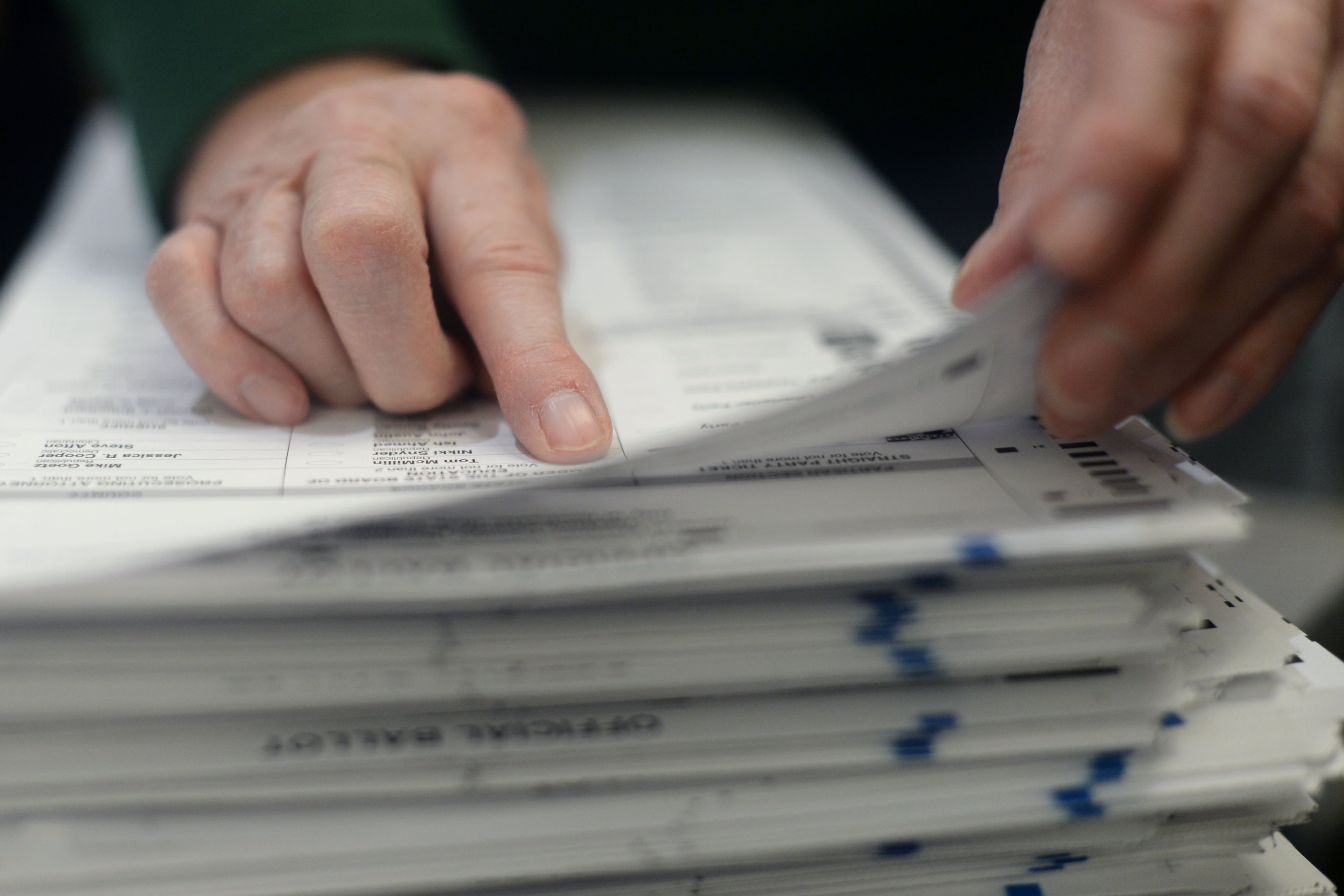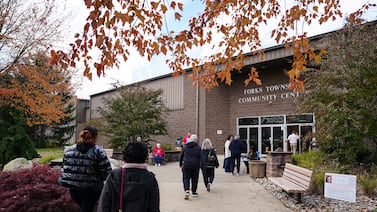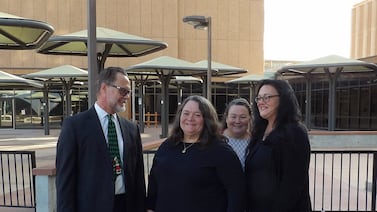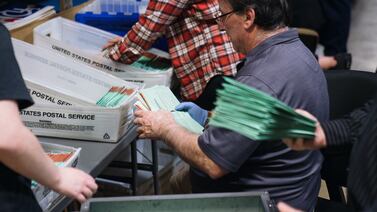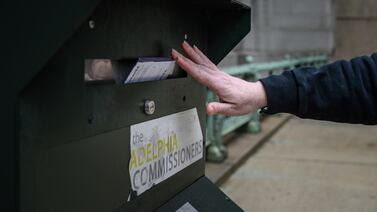Michigan’s Board of State Canvassers on Wednesday unanimously certified the results of the partial recount of the November election, leading to slight changes in vote tallies for two ballot proposals and confirming the original successful passage of both.
The two-week recount, requested by conservative activists, required officials in 43 counties to review votes for Proposal 2, which will implement a series of election reforms; and Proposal 3, which creates a constitutional right to an abortion. The recount added 14 yes votes and 20 no votes to the totals for Prop 2; and 116 yes votes and 7 no votes to the totals for Prop 3, according to preliminary figures the state released Tuesday.
Wednesday’s hearing in Lansing lasted nearly seven hours and was mostly tranquil compared with the canvassers’ two other meetings following the November election. The four board members discussed 119 challenges to votes cast, determining almost all of them were valid. Some of the complaints ranged from pen marks that bled through the opposite side of ballots in Genesee County and elsewhere to “green ink” on a ballot in Muskegon County to a challenge involving a “crumpled” ballot in Livonia.
Jonathan Brater, Michigan’s elections director, told board members that 94 percent of the more than 500 precincts targeted for recounts were recountable, meaning they had no problems such as broken security seals or discrepancies in their ballot counts.
Brater said officials encountered problems with some challengers wanting to inspect the front and back of the ballots, which was not allowed since the petition only involved Proposal 2 and Proposal 3 of the ballot. That led to some minor disturbances, including challengers touching ballots and election materials they shouldn’t have or stepping into areas they weren’t allowed.
“We had folks raising their voice or threatening to file criminal charges or to file police reports,” said Brater. “That did slow things down in some places.”
The recount was requested by Jerome Jay Allen, a member of the Troy-based conservative group Election Integrity Fund and Force. Allen’s petition incorrectly alleged that voting tabulators were connected to the internet and that voting equipment in Michigan was not legally certified. EIF recruited and trained challengers to monitor recount sites during the process that ran from Dec. 7 to 16.
The recount fees were funded by the America Project, a national Trump-aligned group headed by former Overstock CEO Patrick Byrne and former National Security Advisor Michael Flynn.
Proposals 2 and 3 won by large margins among Michigan voters. Proposal 2 was approved by 57 percent of the vote while Proposal 3 received 60 percent approval.
Canvassing board members Wednesday painstakingly listened to lengthy arguments from Daniel Hartman, an attorney representing EIF members, that stretched way past his allotted three minutes for comment. Hartman called for an investigation about alleged missing envelopes for absentee ballots in Oakland County as well as complaining that a challenger had not been able to look at both sides of the ballot, a common refrain by the EIF challengers.
Board of State Canvassers Chairman Tony Daunt, a Republican, warned Hartman to not go into complaints or challenges “beyond the scope” of the original recount petition.
The Board of State Canvassers originally certified the election results on Nov. 28, but the certification was put on hold after Allen requested the recounts, and the board voted 3–0 on Dec. 5 to grant them. At the time, Daunt said, “This is unnecessary, frivolous and ridiculous. … This is a fishing expedition.”
Metro Detroit attorney Mark Brewer, general counsel for Promote the Vote — which pushed for Prop 2 — argued at Wednesday’s hearing that Hartman and his group have “abused” the recount process and are “election deniers” who have used the recount process to “advance their own organizational agenda.”
“It’s clear that Michigan voters trust the elections process,” said Brewer, who called for the Michigan Legislature to change state law involving election recounts to prevent a baseless request that stands no chance of changing the outcomes of an election.
Micheal Davis, the executive director of Promote The Vote agreed.
“These recounts were initiated by election deniers who are still seeking to overturn an election that took place more than two years ago,” said Davis in a statement Wednesday. “They are not interested in improving elections in Michigan.”
Hartman told Daunt at the conclusion of the meeting Wednesday that “the idea [of the recount] was not to change the outcome. This was an educational and informational process that needed to happen.”
Oralandar Brand-Williams is a senior reporter for Votebeat. Contact Oralandar at obrand-williams@votebeat.org.
This article is made possible through a partnership with Bridge Michigan, Michigan’s largest nonpartisan, nonprofit news publication.


